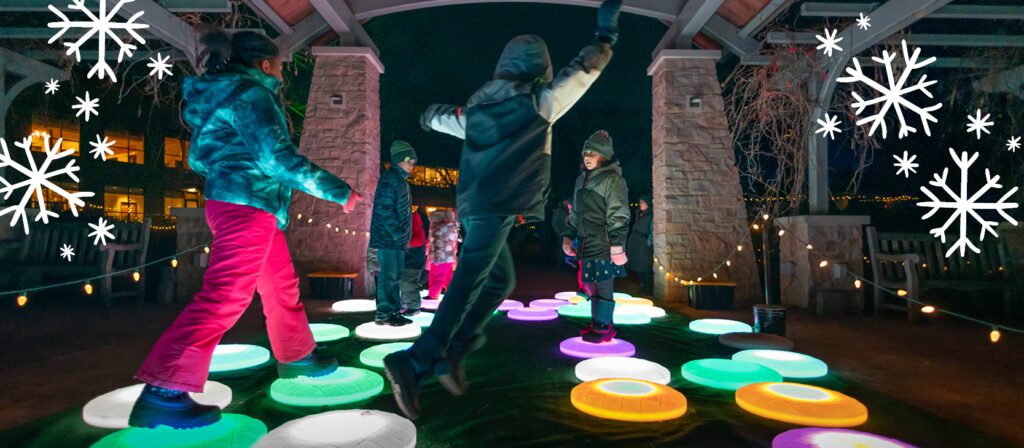Fall is here! As the weather will continue to change from a crisp fall day into a chilly winter, Wisconsin birds prepare for their 600-mile non-stop trek to warmer weather to overwinter.
Then, as Wisconsin defrosts in the spring, they’ll return to enjoy the springtime and warm summer temperatures.
This week we’re digging into what Wisconsin-native birds migrate and how we can help them prepare for their long trek south and make a welcoming home for when they return.
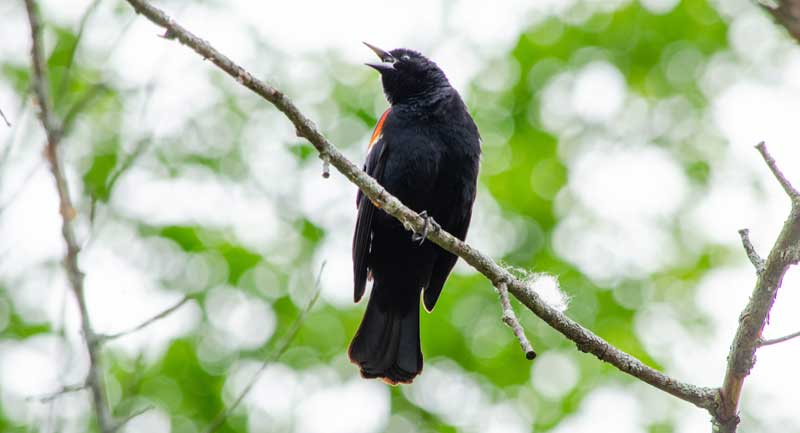
PC: Chris Pamperin
Waterfowl
Waterfowl birds are a type of bird that you frequently see by or in water, such as a duck or goose. Ducks and geese are one of Wisconsin’s earliest spring migrators. Green Bay is one of the largest freshwater estuaries in the world and is a crucial habitat for migrating waterfowl. Ducks and geese reside near a freshwater coast for breeding and hatching season to raise their young. Then when their younglings are ready, they’ll depart for their migration south sometime in late summer or early autumn.
Other native waterfowl migrators:
- Tundra swan
- Trumpeter swan
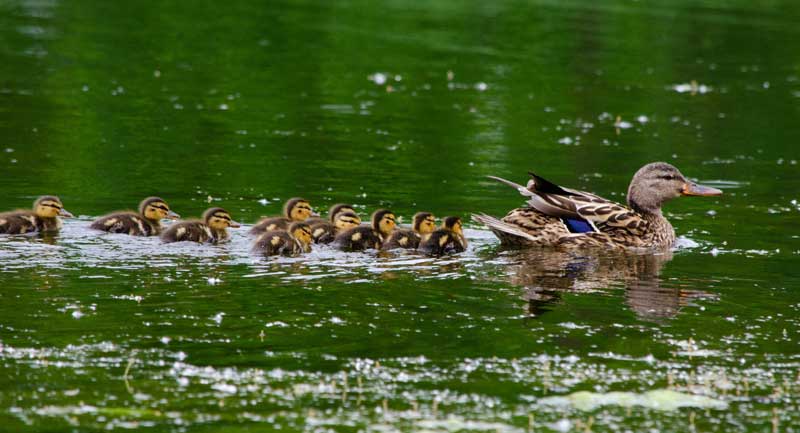
PC: Chris Pamperin
Waders
Waders are also water birds, but they are different from waterfowl because of their typically long legs. Waders often have long legs to skim through the water with ease instead of having to swim. Whooping Cranes return to Wisconsin during the springtime as well.
Other native wader migrators:
- Sandhill crane

PC: Flickr.com
Songbirds
The most commonly known type are birds that you see on your feeders or bird baths: songbirds. Birdwatchers see flocks of the small and colorful birds flying back to Wisconsin to sing their pretty songs, and lay eggs to raise their young starting in April and May.
Warblers are the most varied (and colorful) bird of the migrating season in Wisconsin.
Other native songbird migrators:
- American robin
- Blue jay
- Ruby-throated hummingbird

PC: Teresa Hilgenberg Riehl
How You Can Help the Flying Travelers
Native birds need a place to fuel up before they start their journey south and non-native birds may pass through the area for a rest stop.
The best thing you can do to help these fliers is to plant native trees, shrubs, and wildflowers. This helps create habitats where they can rest and eat insects or nibble on other living things for fuel for the next leg of their migration. Planting natives will increase the insect population so that there is enough food to go around for the hungry birds!
Here are some examples of native plants to include in your landscape:
- Oak
- Willow
- Dogwood
- Butterfly milkweed (Butterflies are migrators too!)
- Native grasses such as big bluestem, little bluestem, and Indian grass.
- Conifers
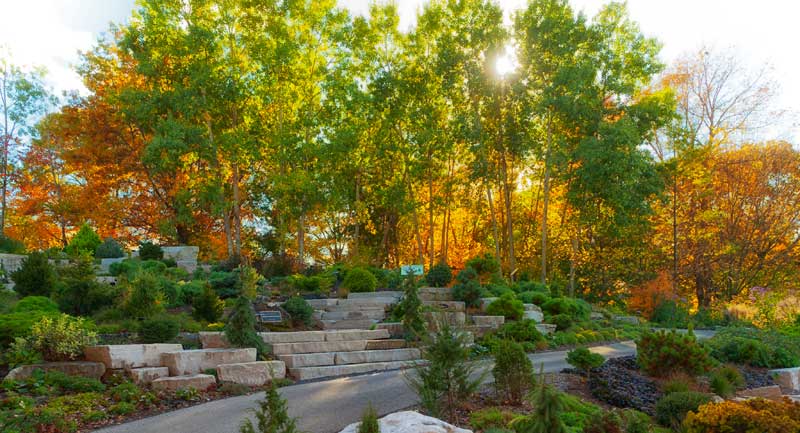
PC: John Oates Photography
If you don’t have a lot of space to put additional plants, you can also set aside oranges, bird seed, and sugar water to give them an extra boost and provide nectar-consuming birds an option on the travelers’ menu.
Providing migrators like the birds we highlighted adequate habitats on their migration journey is just one way we can help these fliers. Visit Green Bay Botanical Garden to experience our Habitat exhibit in person to discover even more about these magnificent migrators and how bird flight influences their natural habitats!
Habitat was developed by Smithsonian Gardens and is made available by the Smithsonian Institution Traveling Exhibition Service.
Sources:

